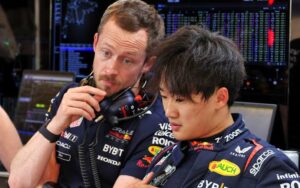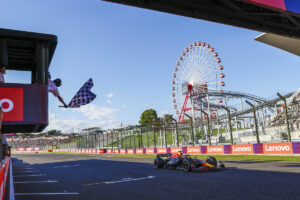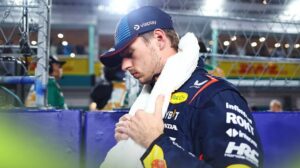Breaking: Verstappen INVESTIGATION backed after Brazilian GP…Read more

Verstappen INVESTIGATION backed after Brazilian GP win
Max Verstappen’s victory at the Brazilian Grand Prix has sparked discussions within the Formula 1 community, with former Haas team principal Guenther Steiner suggesting that the rest of the F1 grid should examine Verstappen’s techniques to understand how he achieved this feat.
The Dutch driver managed to secure a win in Sao Paulo despite a series of setbacks that should have made his success difficult.
Verstappen faced multiple challenges throughout his weekend at Interlagos. After an unexpected elimination in Q2 and an FIA grid penalty, he started the race from 16th on the grid.
His main championship competitor, Lando Norris, had a clear advantage starting from pole position. However, Verstappen excelled in the wet conditions, quickly advancing through the field.
A red flag during the race allowed him to move into the lead, which he then held until the finish, marking one of his most impressive performances.
Steiner highlighted that Verstappen’s success should serve as a learning opportunity for other drivers.
Speaking on The Red Flags Podcast, he argued that Verstappen’s performance warrants close analysis, with other drivers studying his onboard footage to gain insights into his approach.
He emphasized that understanding how top drivers manage races, especially in challenging conditions, is a crucial way to improve.
Steiner noted that drivers often watch footage to observe techniques such as racing lines and car control, aiming to gain the skills needed to replicate these moves in future races.
This process of analysis, he suggested, is essential for drivers who aspire to reach the level Verstappen demonstrated at the Brazilian Grand Prix.
Verstappen’s win in Brazil has brought him closer to a fourth world championship title, as he now has a significant advantage in the drivers’ standings.
His performance is not only a testament to his skill and adaptability but also a potential blueprint for success that other drivers could learn from.
According to Steiner, this type of analysis—reviewing footage and breaking down each move—is the most practical way for drivers to improve their own racecraft.
The Brazilian GP showcased Verstappen’s abilities and reinforced why he is a three-time world champion.
For Steiner, Verstappen’s win serves as a case study for the rest of the F1 grid to better understand elite racecraft and push their own limits on the track.








